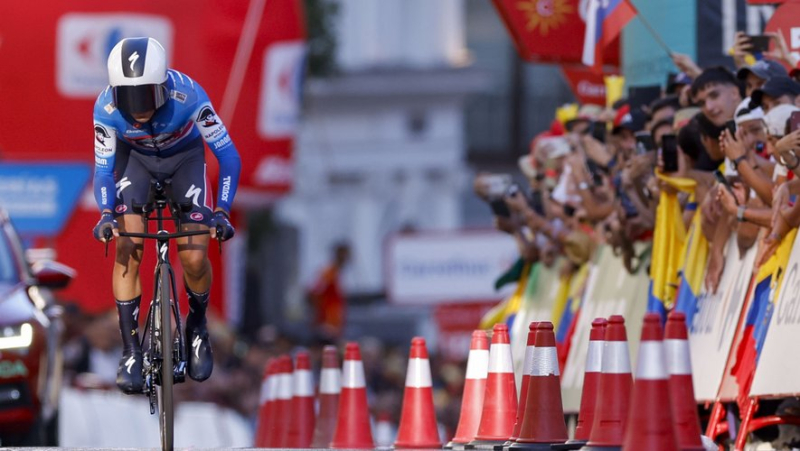Paid “snitches” to fight technological fraud in the peloton

The hunt for fraudsters in cycling is open. MAXPPP – JAVIER LIZÓN
The International Cycling Union (UCI) announced on Friday the establishment of a "rewards program" on the sidelines of the World Championships in Zurich.
The International Cycling Union (UCI) announced on Friday the establishment of a "rewards program" consisting of financially rewarding informants who provide information on possible cases of technological fraud among cyclists, such as the use of an engine.
This program, which comes into effect immediately, "will aim to encourage people with information on this subject to communicate it – confidentially – to the UCI in exchange for a financial reward, in particular", indicated the body whose Management Committee approved the measure on the sidelines of the World Championships in Zurich.
"Particular emphasis will be placed on collecting information relating to the use of technological advances concerning hidden engines and other propulsion methods, thus enabling targeted checks and in-depth investigations, including into past cases of fraud", added the UCI in a statement.
The rewards may be financial or in kind, such as items or access to events. They will be paid “after verification of the relevance and reliability of the information provided” and their extent “takes into consideration the material effort and potential investment provided by the source as well as the potential risk of damage or repercussions due to such disclosure”.
Anonymity of sources
The UCI undertakes to respect and preserve the anonymity of sources, but may require their identification if it deems it necessary to verify the accuracy and/or relevance of the information provided. Requests can be submitted through existing reporting mechanisms or directly to the Technology Fraud Control Department.
Despite suspicions a decade ago, no proven case of mechanical doping has ever been detected in a professional road cycling race. The only proven case of a bike aided by a hidden motor dates back to January 2016 at the U23 Cyclo-cross World Championships. It earned 19-year-old Belgian Femke Van den Driessche a six-year suspension from the UCI.




